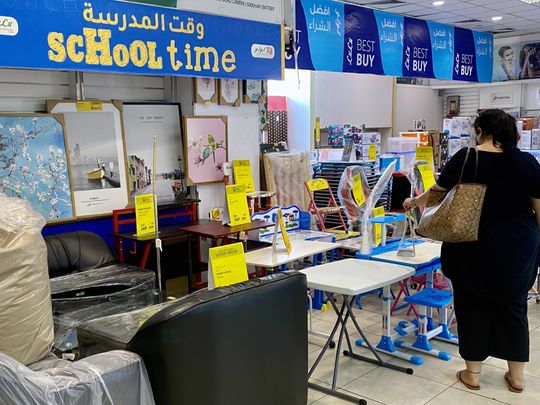
Abu Dhabi: Schools across the UAE are all set to welcome children back to classrooms. Amid the COVID-19 pandemic, this means adhering to the latest precautionary measures that are designed to ensure the safety of students, staff and their families.
Ahead of the new term, the UAE Ministry of Education (MoE) announced the mandatory vaccination requirement for students aged 16 years and older. A number of other updates will also be implemented is schools based on the directives issued by the National Crisis, Emergency and Disasters Management Authority (NCEMA), and emirate-specific private education sector regulators, the Abu Dhabi Department of Education and Knowledge (Adek), the Knowledge and Human Development Authority (KHDA) and the Sharjah Private Education Authority (SPEA).
Here is a run-down of the key points to note before the start of classes.
Does my child have to take a PCR test before physically returning to school?
In Abu Dhabi, all students must present a 14-day negative PCR test report to enter the school premises. Students can get the tests done free of charge at any public or private testing centre of their choice. They must then continue to get tested every 14 days for the first month of schooling.
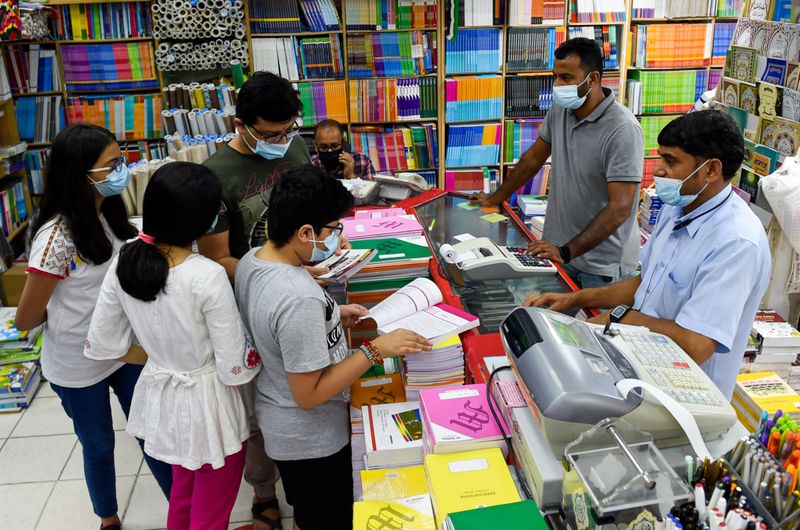
In Sharjah, students must present a negative PCR test to enter school premises.
Students in Dubai’s private schools need not undergo PCR tests if they are attending school in person.
Will there be further screenings once children return to school?
Abu Dhabi: In order to identify any infections in a timely manner, all students aged 12 and above, teachers and staff will be PCR-tested for COVID-19 every two weeks. In addition, following each of the main holidays (winter, spring and summer breaks as well as both Eid holidays) throughout the academic year, students aged 12 years and older, as well as teachers and staff, will be required to have a negative PCR-test with 96-hour maximum validity before entering the school premises.
According to the NCEMA, students — enrolled at nurseries, daycare centres, private schools, public schools, higher education, training centres and institutes — will need to get PCR tests done every two weeks for 30 days from the first day of schooling onwards. Thereafter,
- unvaccinated children younger than 12 years have to take a PCR test every month,
- unvaccinated children aged 12 years or more have to take a PCR test every week,
- vaccinated children aged 12 years and older have to take a PCR test every month.
These requirements do not apply, as yet, to Dubai’s private schools.
What is the vaccination requirement for children returning to school in person?
All children aged 16 years or more who wish to return to school in person from September onwards must be fully vaccinated, i.e., they should have received both doses of a UAE-approved COVID-19 vaccine 28 days before the start of school. This vaccination status must be reflected on the Al Hosn app.
Students turning 16 from July 11 onwards will have to get the first dose of a UAE-approved vaccine within four weeks of their 16th birthday and then go on to complete their vaccination journey in a timely manner.
COVID-19 vaccination is, however, voluntary for younger children attending school in person, and for others who opt for full-time distance learning with a school that offers it.
In addition, Dubai’s private schools have not made COVID-19 vaccination compulsory even for children aged 16 years and older.
What vaccines are approved for children in the UAE, and where are they available?
Children aged three to 11 years can currently take only the Sinopharm vaccine in the UAE.
Children aged 12 years or more can get either Sinopharm or the Pfizer vaccine.
In Abu Dhabi, the Department of Health (DoH) has designated certain centres where children will be vaccinated without prior booking:
1. Sinopharm vaccine for children aged three years or more:
Abu Dhabi city: Abu Dhabi National Exhibition Centre, Seha Al Mushrif Children’s Speciality Centre, Al Mushrif Majlis, Al Bateen Majlis, Al Manhal Majlis
Al Ain: Al Kubaisi Hall at Al Ain Exhibition Centre, Seha Al Towayya Children’s Speciality Centre, Falaj Hazza Majlis
Al Dhafra: Ghayathi Hospital, Marfa Hospital, Delma Hospital, Liwa Hospital, Sila Hospital, Al Dhafra Family Medicine Centre, Al Dhafra Cooperative Society
2. Pfizer vaccine for children aged 12 years or more:
Pop-up vaccination facility at Yas Mall (between August 3-7 and August 24-28).
In the rest of the UAE, the Ministry of Health and Prevention (MoHAP) has designated a series of centres offering COVID-19 vaccines.
Is it beneficial to vaccinate my child, even when the risk of COVID-19 complications is low among children?
School-going children are often considered ‘superspreaders’ when it comes to respiratory viruses, so getting the COVID-19 vaccine may provide an added layer of protection for your child. Moreover, newer COVID-19 variants, like the Delta variant that has been detected in the UAE, have been shown to be more infectious among children than previous strains.
“Research so far has shown that COVID-19 vaccines are remarkably effective and safe. In addition, children have been safely receiving vaccines for multiple diseases and viruses for generations. The Sinopharm vaccine is similar in concept to all of these vaccines,” Dr Ahmed Alsuwaidi, associate professor of Paediatrics and Infectious Diseases, and chair of the Department of Paediatrics at the United Arab Emirates University, said at the start of an Abu Dhabi study to test the vaccine’s safety.
Both COVID-19 vaccines available in the UAE for children have undergone vaccine safety testing.
What if my child needs to attend an exam in school and is not yet vaccinated?
Special arrangements will be made for students aged 16 years or more who have not been vaccinated to sit for critical exams in school, in case vaccination is mandatory for their age group.
For instance, in Abu Dhabi, they will have to present COVID-19 PCR test negative results with 96-hour validity and will only be allowed to enter the premises 30 minutes before the exam. A temperature screening will also be done before entry. They will also be seated separately from other students who regularly attend school. You can contact the school for additional regulations that apply.
I have just moved to the UAE and have not had time to get my children, aged 16 years or more, vaccinated before the start of the school term. What should I do?
Students aged 16 years or more, as well as school staff, will be given a grace period to complete their vaccination journey if it is mandatory for their age group, and they should reach out to their schools for further details.
In Sharjah, the grace period is two months from the start of school.
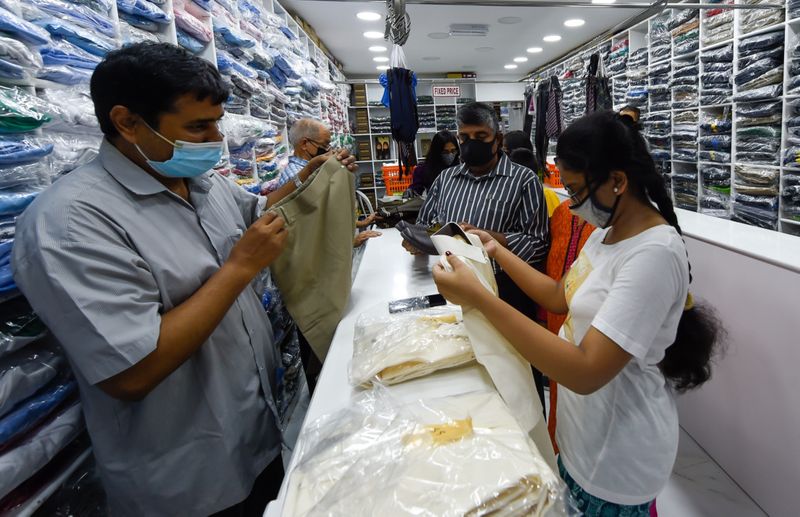
Can I opt for full-time distance learning for my child?
Distance learning will remain an option for children with chronic illnesses, for those aged 16 and above who are not vaccinated, and for those who wish to continue learning online if the model is offered by their school. Please discuss this with your school.
However, in Dubai’s private schools, all teaching and learning will be in-person from October 3, 2021, onwards. From then on, students who wish to continue with distance learning must provide a medical certificate issued by the Dubai Health Authority (DHA).
What if my child has a medical condition that prevents him from getting the COVID-19 vaccines that are available?
Apply for a vaccination exemption certificate at an authorised vaccination centre.
Children aged 16 years or more will be able to enter school premises, in cases where vaccination is mandatory, once this exemption status reflects on the Al Hosn app. You can also submit the certificate to school authorities.
What should I do if my children have travelled abroad during the summer, and now wish to return to school in person?
Ensure they follow the quarantine/testing requirements set forth by the DoH in Abu Dhabi, and the National Crisis, Emergency and Disasters Management Authority.
Sign and submit a Travel Declaration Form, with the necessary documents and information, to your child’s school. Schools are required to collect these forms before the term starts.
Will schools open full-time in-class learning, or a blended model of learning for those returning to school in person?
Abu Dhabi:
Schools can choose between a number of reopening models:
- Full return in which students attend school in person for a duration matching pre-pandemic instruction hours.
- Partial return, in which schools maintain pre-pandemic instruction hours, but offer some of the hours through distance learning in a half-day, alternating day or alternating week format. Schools that cannot accommodate all their students due to physical distancing requirements can opt for these models.
- Distance learning in which all learning is conducted online. Schools can offer this for students who choose this model.
In its Parents’ Guide for school return, Adek has recommended that parents ‘consider the many advantages of face-to-face learning for [children’s] academic progress and mental wellbeing. Parents must commit to their choice for the entire term to allow schools to plan better. In addition, schools will monitor attendance and engagement for all modes of learning’.
Dubai:
All students in private schools must physically attend school from October 3 onwards, unless they have an approved exemption.
Will I have to pay the full tuition fee if my child’s school offers a blended model of return?
In Abu Dhabi, Schools reserve the right to charge full tuition fee from all students irrespective of the mode of attendance (i.e., face-to-face or distance learning). However, fee increases have only been approved for schools by Adek this year under exceptional circumstances.
What other COVID-19 precautions will be implemented when classes resume?
Masks: Everyone entering school premises must wear a mask, except kindergarten students. Masks can only be taken off during lunch, or during certain sports activities. Teachers of younger students, and of special needs students who have hearing impairments, may wear transparent masks. Students and schools should also have spare masks with them, and schools must educate students on both proper mask-wearing and disposal.
Physical distancing: A physical distance of one-metre must be maintained between all individuals on school premises. The only exception is younger children grouped in bubbles.
Personal hygiene: Students should be encouraged to carry hand sanitisers with them and should be taught to properly wash their hands, especially after activities before eating, after using the washroom and after sneezing and coughing.
Regular disinfection and sanitisation: Adek-mandated disinfection protocol will continue to be followed, including the sanitisation of shared equipment and objects between uses by different groups, and of high-touch surfaces such as switches and doorknobs.
Bus transport: While children are encouraged to use private transport if possible, carefully-monitored transport services will be provided. Students using the school bus will have to maintain adequate physical distancing, be screened before being allowed to enter and will be assigned designated seats to be used every day.
Entry restrictions: Schools typically limit entry to one guardian per child during pick-up and drop-off.
Additional protocols in Abu Dhabi private schools:
Grouping in macrobubbles: When classes resume, children will be grouped in ‘macrobubbles’ — a group of classes and individuals (students and staff) who are physically isolated from other macrobubbles during the school day — in order to reduce the spread of COVID-19 among students and staff. Organising students in macrobubbles will continue to reduce shifts to distance learning, which is the regulatory protocol when a certain number of COVID-19 cases is detected in a class or within a macrobubble.
Grouping younger students in bubbles: A bubble is a small group of students who do not have to observe physical distancing from each other but are isolated from other bubbles of students. Bubble sizes for younger students enrolled from kindergarten up to Grade 2, who do not practice social distancing, will be increased from ten to 16 students per bubble.
Distance learning: Schools must be equipped to temporarily shift students and staff to distance learning in case positive COVID-19 cases are detected. Based on Adek’s latest regulations, a class must shift temporarily to distance learning if two COVID-19 cases are detected within it. A group of classes in a macrobubble must switch to distance learning if four of its classes have had to switch to distance learning or if there are eight positive COVID-19 cases within it. Finally, if there are 24 COVID-19 cases in a school, or if three of its macrobubbles have switched to distance learning, the school must switch temporarily to distance learning. Additionally, children who are identified as ‘direct contacts’ of someone who has tested positive for COVID-19 will be isolated based on the DoH contact tracing and isolation protocol.
Entry restrictions: All visitors aged 12 and above shall show proof of a negative PCR test with a 96-hour validity, and those who are 16 and above must also be fully vaccinated. Additionally, each person will be screened for symptoms such as fever and cough before entry.
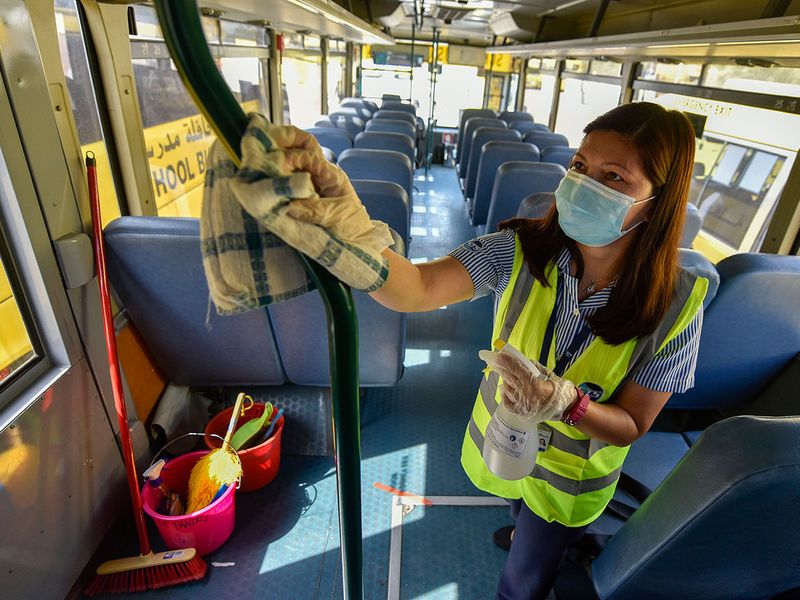
When should I keep my child home from school?
Keep your child home if you notice any of the following symptoms:
-fever
-cough
-bodyache
-fatigue
-shortness of breath
-runny nose
-sore throat
-diarrhoea
-nausea
-headache
-loss of taste or smell
Will any additional activities be allowed in schools under the new updates?
Abu Dhabi private schools:
-Communal areas vital to interaction and socialisation will reopen, including play areas for younger students, libraries and prayer rooms.
-Cooking will be permitted on school premises, as long as food is served by designated staff members, and in accordance with Abu Dhabi Agriculture and Food Safety Authority regulations, which include serving food in individual portions.
-Students will resume Physical Education (PE) classes and sports, including swimming, with special arrangements and adaptations based on risk assessments. All activities have accordingly been grouped as high, medium or low risk, with associated space, physical distancing and mask wearing requirements.
-Schools must sanitise recreational areas and sports equipment between uses by groups.
-Extracurricular activities for a school’s students will also resume, providing schools complete a risk assessment and implement safe operation policies, including physical distancing and mask-wearing. Events involving large assemblies of students will however remain suspended, including morning assemblies.
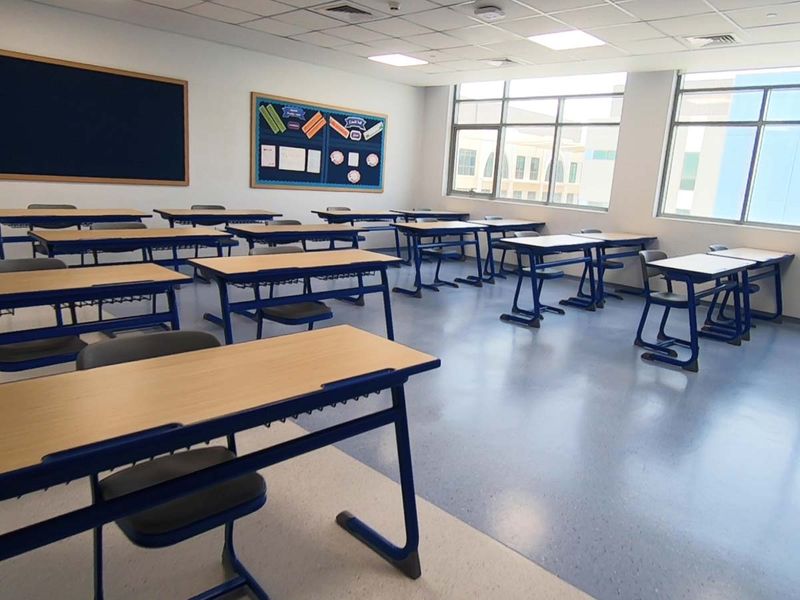
Dubai:
Under approved health and safety protocols, Dubai’s private schools will resume:
-swimming and sports lessons
-school trips, excursions and camps
-after-hours extra-curricular activities
-performances, assemblies and other events at school or at an external venue
- school canteens are also allowed to open.
Read more
- UAE: Events and activities across educational facilities allowed
- COVID-19: Negative PCR test report must for all employees and students 12 years and above at Sharjah private schools
- School transport operators explain COVID-19 safety protocols as new term begins in the UAE on Sunday
- NYU Abu Dhabi to have visiting professors from Indian universities
What forms do I need to submit to the school before the start of the term if I want my child to attend school in person?
Abu Dhabi:
Student Physical Return Declaration Form: Parents or legal guardians must declare their consent for students to physically return to school. They must also be aware of their obligations, including screening children daily for symptoms.
Medical Risk Undertaking Form: This is a declaration of any medical conditions in children that may put them at high risk of COVID-19 infection, and to acknowledge that legal guardians understand the risks of a physical return to school. A physician’s note regarding the child’s physically fitness must accompany this form.
Travel Declaration Form: This informs schools if a child has travelled abroad, and informs school authorities about completed quarantine protocols. PCR test results are also required for all students aged at least four years old, and those aged up to 11 years can get either a nasopharyngeal or a saliva PCR test.
Individual Risk Assessment for Students of Determination: An individual risk assessment has to be conducted by a parent or legal guardian, and a member of staff familiar with the student’s needs, to determine what is the best option for the student — a physical return to school or distance learning.
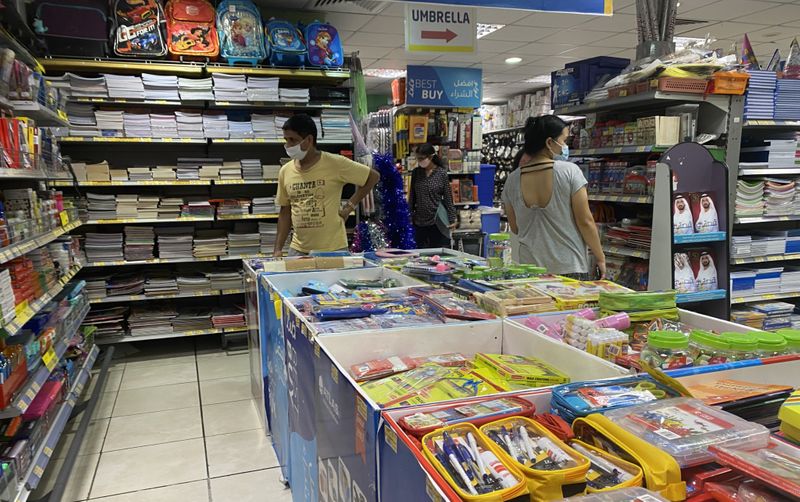
Can I visit my child’s school?
In Abu Dhabi, you can visit your children’s school if you are vaccinated and show proof of a negative PCR test report valid for 96 hours. Some parents may be asked to accompany younger children who are distressed, and these parents must also provide a valid PCR test report.
How will schools maintain academic quality?
In Abu Dhabi, standardised assessments will be administered starting this semester for students in Grade 3/Year 4 and above to identify learning gaps. Schools will contact parents regarding specific guidelines for remote and on-site assessments. The results of these assessments will be shared to inform parents about children’s progress in school. Schools will also deliver extra interventions to students who have experienced severe learning loss due to online learning.
Abu Dhabi has also mandated standards for full distance learning, wherein at least 50 per cent of children’s distance learning time will be spent learning through a “live” or real-time session. This will involve a teacher and interacting at the same time with students in a shared video or audio session, allowing for on-the-spot feedback and communication. Teachers’ cameras will be switched on during live lessons to encourage and increase interaction, and all live sessions shall be recorded (without featuring any student) and will be accessible to parents and students.





